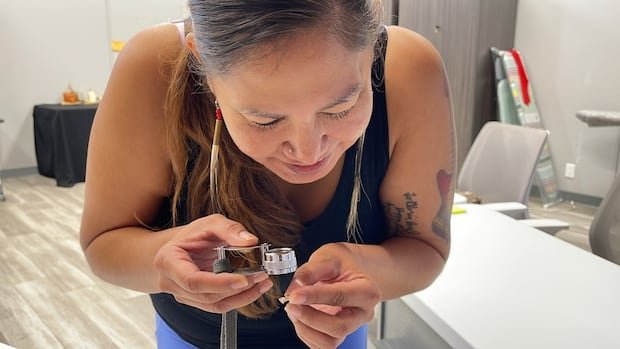On a sunny Tuesday morning in July, nine students are gearing up to explore soil in search of answers as part of a six-week archaeological field school organized by the Esk’etemc First Nation. This initiative not only offers Indigenous students the opportunity to delve into the profession of archaeology but also to connect with their family history, culture, and personal identities. The group, filled with anticipation, is excited to uncover a pit house and the various artifacts it holds in B.C.’s Alkali Valley, located approximately 180 kilometers northwest of Kamloops.
Among the students, 50-year-old Greg Harry from Alkali Lake expresses his longstanding interest in archaeology, stating, “This kind of opens my eyes. I want to go back and see how we lived back in the day, and how we survived ’til now.”
In recent archaeological findings earlier this year, the Williams Lake First Nation and Esk’etemc announced the discovery of previously unrecorded communities post the Chilcotin River landslide in July 2024. A total of 70 sites were documented, including 31 pre-contact Secwépemc village sites, some featuring burials, caves, and rock art.
Esk’etemc education director Calvin Dubray collaborated with Thompson Rivers University (TRU) to establish the field school, offering training in surveying, mapping, excavation, and lab work on Esk’etemc land. At the program’s conclusion, the nine students will be equipped to work on archaeological sites, described as ‘field ready’ to assist certified archaeologists in fieldwork.
Audrey Grinder, aged 52, aspires to become a certified archaeologist, emphasizing the excitement of discovery and learning from ancestral artifacts during the excavation process.
The field school’s uniqueness lies in its adherence to Esk’etemc Nation’s protocols, ensuring control over project access and findings, as highlighted by archaeologist and TRU instructor Beth Bedard. This approach combines scientific rigor with Esk’etemc protocols, offering a comprehensive understanding of the community’s history.
For many students, the field school serves as a transformative experience, potentially leading to a career change with deep personal significance. It also fosters a stronger sense of identity and heritage among participants, allowing them to gain insights into their roots and purpose.
Teena Ogden, aged 67, describes the experience as “rejuvenating” and expresses her newfound inspiration to delve deeper into her history, aspiring to learn the Secwepemctsín language as part of her continuing journey of self-discovery and reinvigoration.

